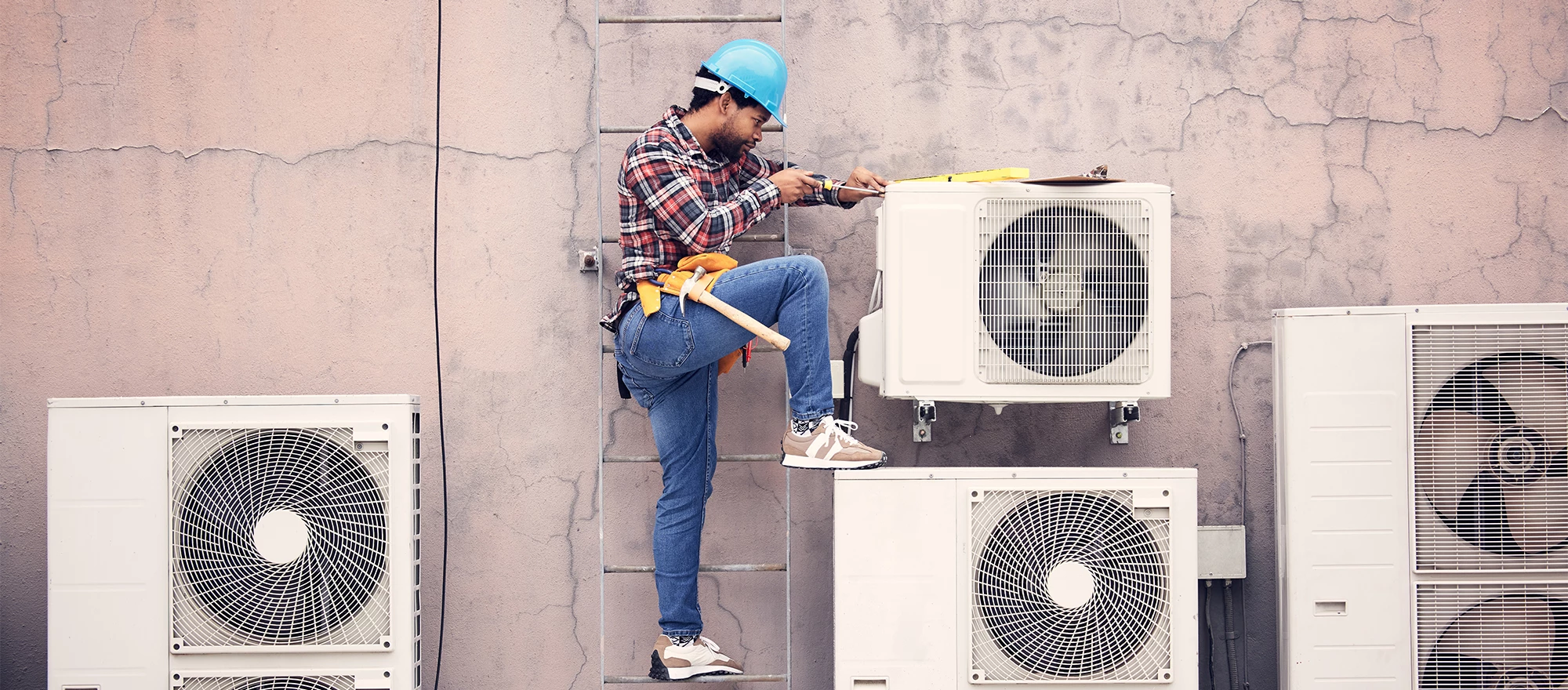Introduction: a sustainable frontier in heating
As the world grapples with the imperative to shift towards cleaner and more sustainable energy solutions, heating has emerged as one of the greatest challenges in the transition. One option that is being put forward is the use of heat pumps (both on the level of individual households and on the level of a district).
Heat pumps can not only provide efficient heating and cooling but also offer a pathway to reduce the overall reliance on fossil fuels. However, in Belgium, despite their potential, the widespread adoption of heat pumps faces challenges related to cost and the prevailing low gas prices.
A different option that is also being implemented are heat networks, to read more about this find our article here.
What are heat pumps?
Heat pumps are devices that can provide both heating and cooling for buildings by transferring heat between the inside and outside environments. They work on the principle of moving heat from a lower-temperature space to a higher-temperature space, making them highly efficient for both heating and cooling applications. There are several types of heat pumps, including air-source heat pumps, ground-source (geothermal) heat pumps, and water-source heat pumps.
Types of heat pumps
Air-Source Heat Pumps: Absorb heat from the air and are commonly used in moderate climates.
Ground-Source (Geothermal) Heat Pumps: Absorb heat from the ground and are highly efficient but may have higher upfront costs because of the drilling towards deeper layers in the soil that is required.
Water-Source Heat Pumps: Absorb heat from a water source, such as a pond or well.
1. The role of heat pumps in the energy transition
a. Energy efficiency and carbon reduction:
Heat pumps operate on the principle of transferring heat rather than generating it, making them highly energy-efficient. This efficiency translates into reduced energy consumption, resulting in lower carbon emissions compared to traditional heating and cooling systems that rely on combustion processes (mostly through the use of natural gas).
b. Integration with renewable energy:
One of the defining features of heat pumps is their compatibility with renewable energy sources. Households can maximize their produced electricity by having the heat pump cool the house when the sun is shining and temperatures outside are high. During colder months solar energy can be used to generate the necessary heat to create a comfortable environment inside the house.
When powered by electricity generated from solar panels or other renewables, heat pumps become integral components of a sustainable and decentralized energy system.
2. Challenges in belgium: cost and gas prices
a. High Initial Costs:
Despite their long-term economic and environmental benefits, the upfront costs of installing heat pumps can be a barrier for many consumers. The initial investment required for purchase and installation is perceived as a significant hurdle, especially in a market where traditional heating systems are prevalent. This can be mediated by grants provided by the government and/or price drops in the market.
b. Low gas prices:
Belgium's context is further complicated by relatively low gas prices. The competitive pricing of natural gas, a traditional heating source, creates a disincentive for consumers to invest in the higher upfront costs associated with heat pump installations. A solution often uttered is a shift in taxation away from electricity and towards natural gas. This tax shift could make the investment in a heat pump make financial sense to an average consumer / household.
3. The path forward: overcoming barriers for a sustainable future
a. Government incentives and policies:
To accelerate the adoption of heat pumps, governments and policymakers can play a pivotal role by offering incentives and implementing policies that make these systems more financially accessible. Subsidies, tax credits, and favorable financing options can make the initial investment in heat pumps more attractive to consumers. The Flemish government currently provides grants between 300 and 4.000 euro depending on your personal situation and the type of heat pump.
b. Public awareness and education:
Increasing public awareness about the long-term benefits of heat pumps, both in terms of cost savings and environmental impact, is crucial. Educational campaigns can help dispel myths surrounding their effectiveness and emphasize the role they play in the broader energy transition.
4. Conclusion: a vital role in the sustainable energy mix
As the world strives for a more sustainable energy future, heat pumps have emerged as a viable alternative in the heating and cooling landscape. In Belgium, overcoming challenges related to costs and low gas prices is essential to unlocking the full potential of these devices and stimulate widespread adoption. By integrating solar panels, electric vehicles and heat pumps they can become cornerstones of a resilient and eco-friendly energy ecosystem.






